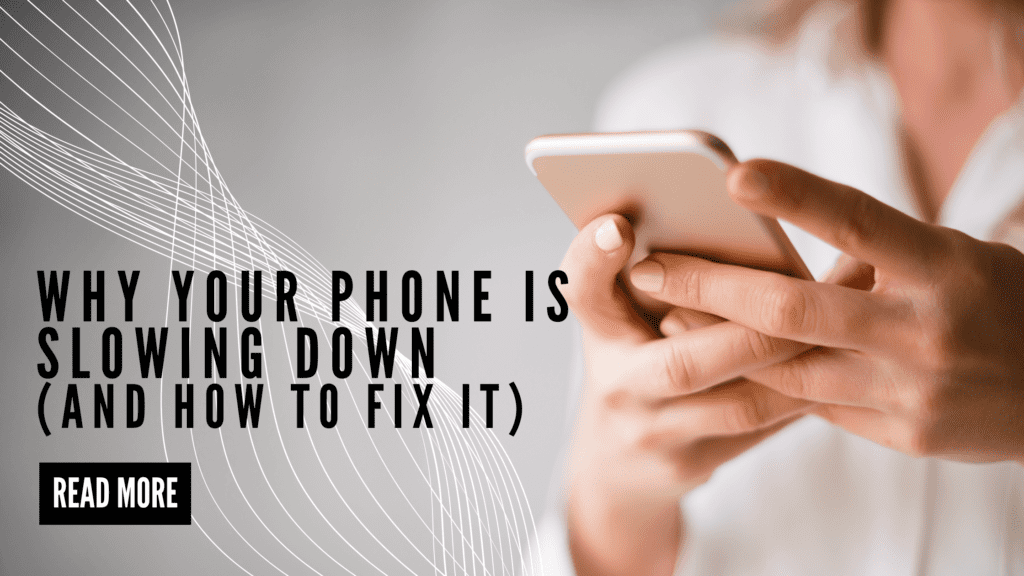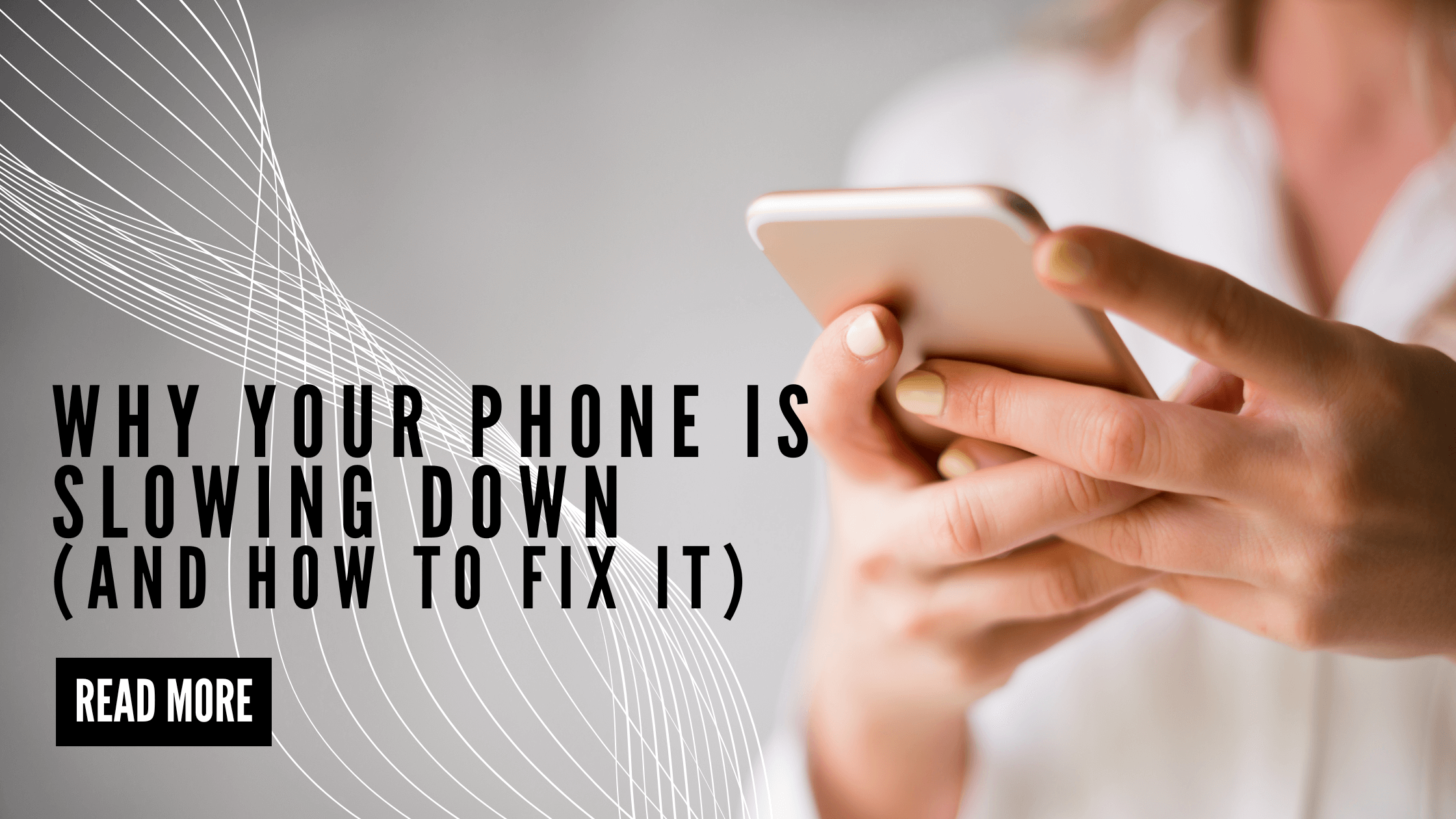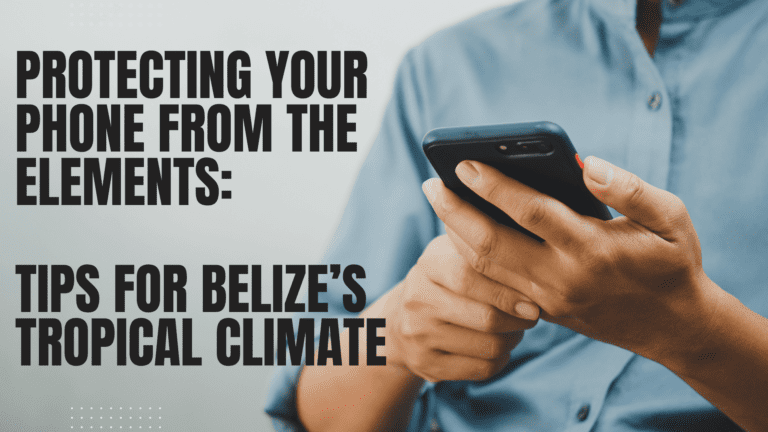Why Your Phone is Slowing Down (and How to Fix It)
We’ve all been there—you’re using your phone, and it just seems to get slower and slower. Apps take forever to load, your messages lag, and even basic functions like making a call or browsing the web feel sluggish. It’s frustrating, especially when your phone isn’t that old, so what’s going on?
In this post, we’ll break down why your phone might be slowing down and, more importantly, how you can speed it up and get it back to running smoothly. Whether you’re using an iPhone, Android, or any other device, these tips should help you out.
1. Storage Overload
One of the most common reasons your phone might be slowing down is a lack of storage space. When your phone’s storage is nearly full, it doesn’t have enough room to operate efficiently. This can cause lag, freezes, and slowdowns as the device struggles to function with minimal space.
Fix it: Start by checking how much storage is available on your phone. Most devices have a “Storage” section in the settings menu where you can see what’s taking up space. Delete unnecessary apps, old photos, videos, and files you no longer need. Don’t forget to clear your cache, which can often build up and consume valuable storage space without you realizing it.
For an extra boost, consider moving your photos, videos, and documents to cloud storage (like Google Drive or iCloud) to free up space on your device.
2. Too Many Apps Running in the Background
Multitasking is great, but too many apps running in the background can bog down your phone’s performance. Even when you’re not actively using an app, it might still be working behind the scenes, consuming memory and processing power.
Fix it: Close apps when you’re done using them, especially ones that tend to be resource-heavy, like games or streaming apps. On both Android and iPhone, you can see which apps are running in the background and manually shut them down. For iPhone users, swipe up from the bottom and pause in the middle of the screen, then swipe up on the app’s preview to close it. For Android, tap the square icon or use your phone’s multitasking button to close apps.
If an app is still giving you trouble, consider disabling background data or notifications for it in your settings.

3. Outdated Software
Phones receive regular updates to improve performance, fix bugs, and enhance security. If you’ve been putting off updating your phone’s operating system, that might be why it’s slowing down. Updates often come with optimizations that help your phone run more efficiently.
Fix it: Go to your phone’s settings and check for software updates. If an update is available, install it and restart your phone. This simple step can often improve performance dramatically.
While you’re at it, check for app updates as well. Sometimes, outdated apps can cause problems that slow down your device.
4. Your Battery is Dying
As your phone’s battery ages, its ability to hold a charge and deliver power efficiently declines. This can lead to sluggish performance, especially when your battery is running low. Many phones automatically reduce performance to save battery life when the charge is low or when the battery is aging.
Fix it: If your battery drains quickly or your phone feels slower than usual, it might be time for a battery replacement. You can check your battery’s health in the settings of most devices. On iPhones, for example, go to Settings > Battery > Battery Health to see if your battery’s maximum capacity has diminished.
If you’re not ready to replace the battery yet, try using battery-saving modes or reducing screen brightness, turning off location services, and disabling push notifications to extend the battery life and maintain performance.
5. Malware or Viruses
If you’re seeing strange pop-ups, ads, or unusual activity on your phone, it might be infected with malware. While this is more common on Android devices, iPhones aren’t completely immune either. Malware can slow down your phone by running unwanted programs in the background or even stealing your data.
Fix it: Download a reputable mobile security app to scan for viruses and malware. If the app finds any, follow the instructions to remove the threat. To avoid future infections, only download apps from trusted sources like the Google Play Store or Apple’s App Store and be cautious about clicking on suspicious links.
6. Old Hardware
Sometimes, it’s just a matter of your phone being past its prime. As apps, games, and software get more advanced, they require more powerful hardware to run smoothly. If you’re using an older phone, it might struggle to keep up with today’s demands, leading to slow performance.
Fix it: If you’ve tried all the above tips and your phone is still sluggish, it might be time to consider an upgrade. While buying a new phone can be a significant investment, upgrading to a newer model with faster processors, more RAM, and better battery life can make a world of difference.
At Plett’s Electronics, we offer a wide range of phones for every budget, from the latest flagships to reliable budget options. Whether you’re ready for the newest iPhone or looking for a solid, affordable Android device, we’ve got you covered.

7. Resetting to Factory Settings
As a last resort, if none of the other solutions are working, you can try resetting your phone to its factory settings. This will erase everything on your phone and bring it back to the state it was in when you first bought it. While this can fix performance issues, it should only be used as a final option because you’ll lose all your data.
Fix it: Before doing a factory reset, make sure you back up everything important. On iPhones, you can back up to iCloud, and on Android, you can back up to Google Drive. Once everything is backed up, go to your settings and choose the option to reset your device. After the reset, your phone should feel like new again.
Wrapping It All Up
Dealing with a slow phone can be frustrating, but with a little maintenance, you can often get it back to running smoothly. Start by clearing out unnecessary storage, updating your software, and shutting down background apps. If that doesn’t work, check for battery issues, malware, or old hardware.
And if all else fails, it might be time to consider an upgrade. At Plett’s Electronics, we’re here to help you find the perfect phone that suits your needs and budget. Stop by our store to check out our latest deals and get expert advice on your next upgrade.







